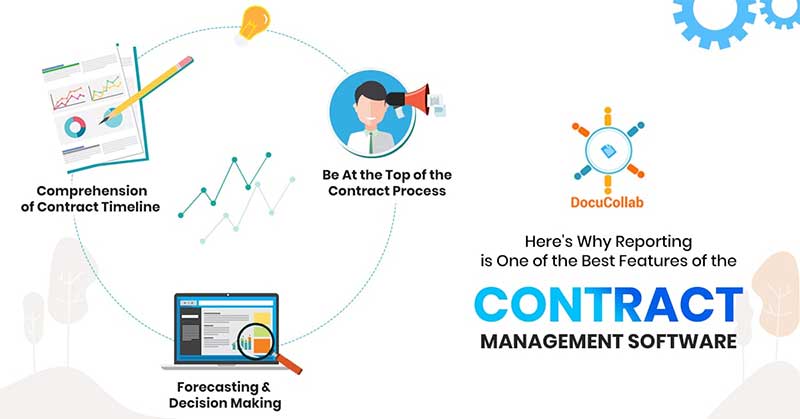Why you Should Use Healthcare Contract Management
Contracts are an integral part of a business in all industries, and the healthcare sector is not an exemption. Healthcare contract management software is essential because it makes sure all medical offices stay compliant with the rules that regulate the company’s standards.
Healthcare organizations and hospitals struggle with managing the necessary agreements for their office’s daily operations. It is crucial to find automated solutions when managing these necessary contracts since 80% of all transactions in a healthcare setup need contracts.
Regulatory compliance is not the sole reason we should incorporate healthcare contract management software in a medical facility, as there are more benefits.

What is Healthcare Contract Management?
Healthcare contract management is a systematic approach to monitoring the contract’s performance to ensure fidelity, accuracy, and efficiency. Healthcare contracts vary between the vast spectrum of managed care and provider contracts between your enterprise and its payers.
Besides simple navigation in these contracts, an excellent contract management program also focuses on the future. These programs identify flaws and use preventive measures to halt issues before they explode.
Benefits of a Healthcare Contract Management
Contracts are essential to employment in healthcare, and a typical institution might have many contracts that cover several departments and facilities. The manual approaches used by most healthcare organizations are based on spreadsheets and shared drives. Not only are these methods inefficient, but they also put companies at high risk.
This is because they increase the chances of contract mismanagement and mainly fail to enforce the enterprise’s compliance. A modern healthcare contract management has the following benefits;
1. Reducing Complexity and Cost
Managing and processing contracts with providers, payers, and suppliers are complicated without suitable tools. Healthcare contracts are becoming more complicated to negotiate, execute, and manage in the entire contract lifecycle.
Handling different service and physician service agreements and other regulatory compliance is complex and time-consuming. Healthcare management replaces paper documents and physical processes with an automated and digital solution. This, in turn, causes improved responsiveness and agility with time.
2. Minimizes Risk
The execution and automation of bulk activities like workflows and alerts help eliminate missed renewals and other essential obligations and dates. Healthcare organizations can easily track and create administrative functions and fee schedules to handle all these functions.
This, in turn, minimizes the risk of an overlooked thing and reduces the pressure of managing staff contracts.
3. Improved Collaboration
Even basic healthcare contracts involve different parties and are available in multiple versions. Healthcare contract management lets organizations negotiate and collaborate on contracts in actual time and execute them electronically.
Besides making the process faster, real-time CLM enables health organizations to accumulate all edits and captures in the negotiation process. This provides an entire engagement history and an audit trail.
4. Optimizes Processes
Data-driven approaches to healthcare management give healthcare institutions accurate insights into the bottlenecks that hold up contract negotiations. This approach also can enhance the workflow process, thus increasing efficiency.
This provides them the agility to respond better to situations whenever they arise. Companies can handle businesses faster and positively impact by streamlining and automating the CLM process.
5. Demonstrates Compliance
It is challenging to ensure compliance with Stark Law, Medicare, and HIPAA, especially when legal agreements are involved. Healthcare management enables health organizations to handle all compliance reports with ease.
These requirements include drafting agreements all the way to the contract’s execution stage. Reporting on essential data can also occur in a few seconds.

6. Agreement Visibility
Keeping track of your contracts in a healthcare institution is hard, especially if you lack a centralized place to keep your documents. Document digitization keeps them readily accessible to anybody who wants to view them.
These individuals can access the contract’s portal regardless of whether the medical practice is in different locations.
7. Customized Notifications
Fines can be imposed on a healthcare company if it misses the chance to negotiate terms. Failure to negotiate your company’s contracts or missing deadlines might make you waste money on expensive services or equipment you no longer need.
Setting up notifications and alerts for contract deadlines ensures you have enough time to negotiate the terms. Knowing the date your agreement expires eliminates the worry of forgetting due dates.
8. Contract Responsibility
There will be questions regarding the contract’s content in the health field. Contract management should enable providers to allocate one member as an owner and the other as a manager. This enables them to handle issues in each stage easily.
It can be hard to know whether a particular contract is essential for the department, and this software lets providers assign agreements.
Final Thoughts
Healthcare contract management software is essential in health, and the above article has discussed why. Kindly reach out for more information.



